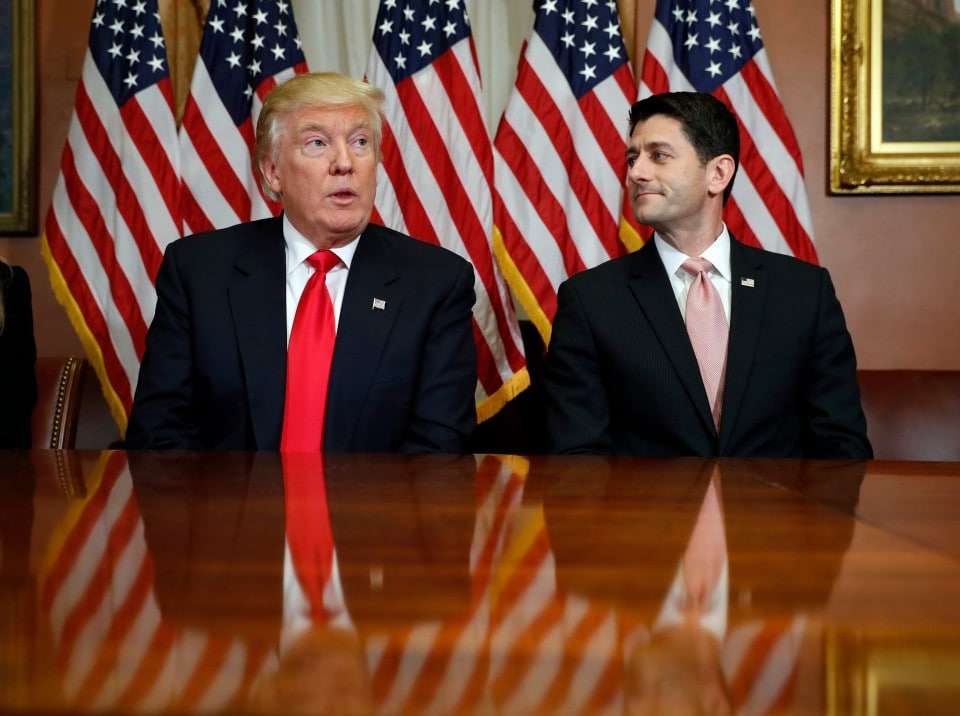The Volokh Conspiracy
Mostly law professors | Sometimes contrarian | Often libertarian | Always independent
Will a Republican Congress place REINS on a President Trump?

Last July, the House of Representatives passed the Regulations from the Executive in Need of Scrutiny (REINS) Act, a measure to limit the ability of executive-branch agencies to adopt major regulatory initiatives without congressional approval. Specifically, the REINS Act prevents new major rules from taking effect unless and until they are approved by a joint resolution in Congress, and creates an expedited procedure for the consideration of such rules. I've written extensively on this idea, including this article in the NYU Journal of Legislation and Public Policy.
The House vote on REINS followed party lines, and the bill never made progress in the Senate. Nearly all Democrats opposed the bill as a partisan effort to restrain President Obama and his likely Democratic successor, and the White House promised a certain veto. No president wants to see his or her regulatory authority diminished by a hostile Congress.
House Republicans have not given up on the REINS Act, however. It's a part of the "A Better Way" agenda, and the leadership promises swift action in the first 100 days of the Trump presidency. President-elect Donald Trump, for his part, also endorsed the REINS Act as a necessary restraint on executive-branch lawmaking - although that was when such lawmaking was being done by President Obama and his appointees. Said Trump:
I will sign the REINS Act should it reach my desk as President and more importantly I will work hard to get it passed. The monstrosity that is the Federal Government with its pages and pages of rules and regulations has been a disaster for the American economy and job growth. The REINS Act is one major step toward getting our government under control.
Trump may well have second thoughts once he realizes that the REINS Act could hamper his own regulatory agenda, at least insofar as it is in conflict with what Congress would support. Prior presidents have often tempered their support for reforms they supported on the campaign trail. Congressional Republicans may also find reasons to second-guess broad reform measures that could constrain a president of their own party. In this sense, the next few months should be highly revealing.
For reasons I've explained in the writings above, I believe the REINS Act would be a worthwhile reform. I believe this even if such a reform, on the margins, restrains some of Trump's deregulatory ambitions. Although often portrayed as a measure designed to hamstring regulators, the primary purpose and effect of the REINS Act is to force Congress to take greater responsibility for the regulatory edicts that are imposed upon the nation. Agencies may adopt regulatory measures only when Congress has given them the power to do so, so Congress should not be able to pretend excessive or unreasonable regulation is someone else's fault. Requiring Congress to pass major regulatory initiatives would help restore political accountability for regulatory policy.
The REINS Act is not the only regulatory reform proposal endorsed by House Republicans. Another is the Separation of Powers Restoration Act, which would, among other things, overturn the Chevron doctrine and prevent courts from deferring to agency interpretations. Another would add additional procedural requirements to notice-and-comment rulemaking. I'm less bullish on these measures because I do not think they address the core problem of unconstrained delegation of regulatory power. The former tries to micromanage judicial review of agency actions, while the latter seems to add costly procedure for procedure's sake. But if Congress fails to act on REINS, perhaps I'll reconsider.


Show Comments (0)